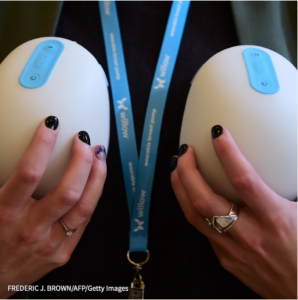Breastfeeding mother’s vast unknown if ACA repealed/replaced #adverseeffects
 The Affordable Care Act established that maternity care and childbirth –– services provided before or after your child is born–– are essential health benefits. This means all qualified health plans inside and outside the Marketplace must cover them.
The Affordable Care Act established that maternity care and childbirth –– services provided before or after your child is born–– are essential health benefits. This means all qualified health plans inside and outside the Marketplace must cover them.
Birth control and other aspects of women’s health care, including breast pumps, mammograms, newborn care, and screenings for cervical cancer, are also considered preventive care, which under the Affordable Care Act must be covered at no cost to the consumer.
Most Marketplace health insurance plans must provide breastfeeding support, counseling, and equipment for the duration of breastfeeding. These services may be provided before and after birth.
Other health providers like Medicaid do cover the cost of breast pumps, but only in certain states. Under the ACA, mothers are able to expect either a rental breast pump or a new one to keep (new electric breast pumps cost around $400).
The ACA also amended the Fair Labor Standards Act to stipulate that employers must give nursing mothers a “reasonable” break time to pump for their breastfeeding child, and that they be given a private room to do so (not including a bathroom).
HealthCetera producer and host Barbara Glickstein interviewed Tara Pomerantz, RN, BSN, who talks about the potential impact on mother’s who breastfeed if access to breast pumps and breastfeeding support were no longer available through their health insurance if that provision in the ACA was repealed or replaced by the new Republican led administration.
Tune in to HealthCetera Thursday, January 19th at 1:00 PM 99.5 FM streamed at www.wbai.org to hear the interview or click below
*HealthCetera Radio will be producing weekly news updates and dedicated segments called Adverse Effects. We will be reporting on the impact of the repeal/replace of the ACA, changes in Medicaid, Medicare, and CHIP.
Podcast: Play in new window | Download
The Affordable Care Act established that maternity





